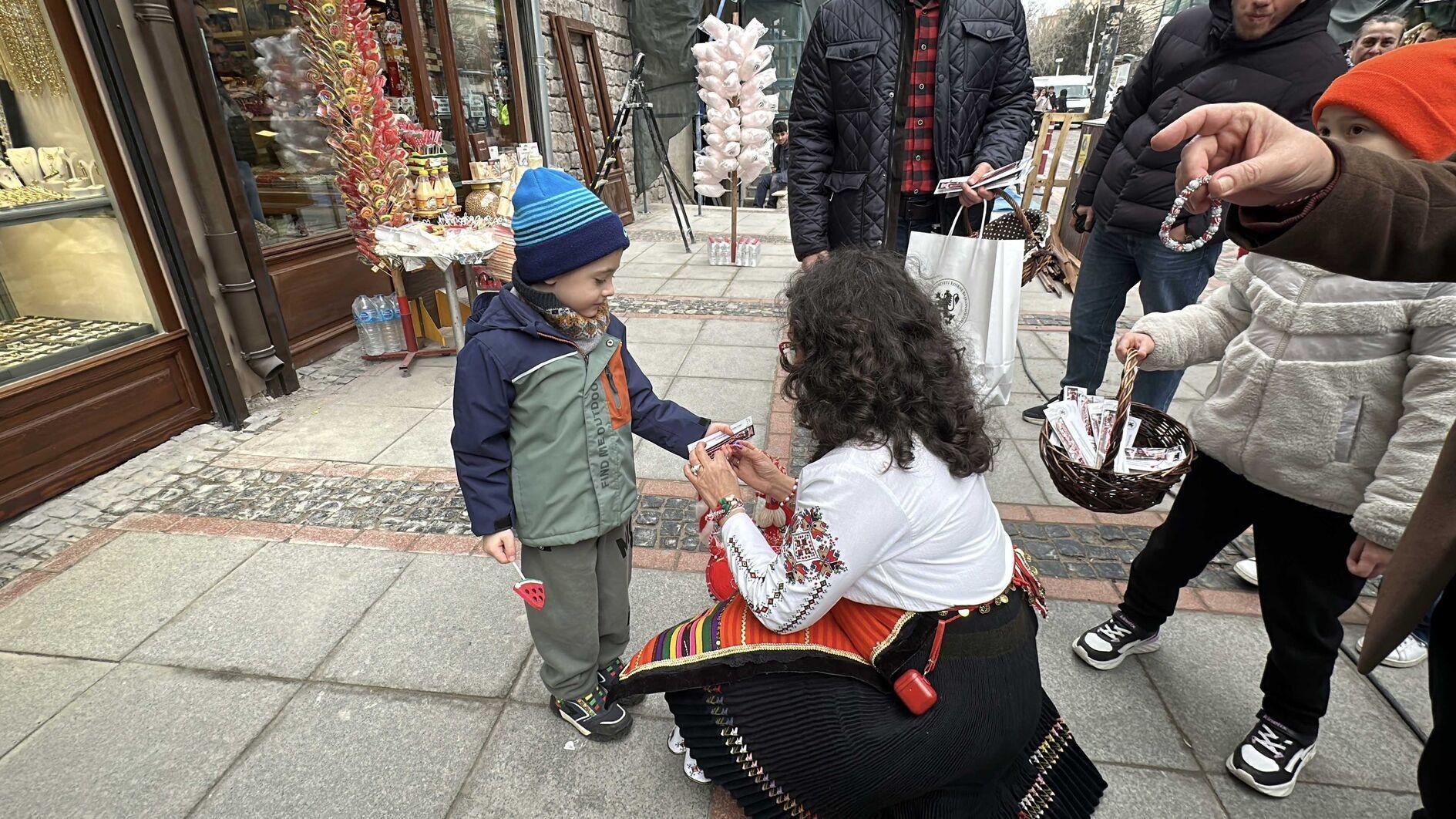
Cities in western Türkiye marked the arrival of spring on March 1 with vibrant celebrations of Baba Marta, a centuries-old tradition deeply rooted in Balkan folklore, believed to bring prosperity, health and happiness.
The event featured the distribution of red-and-white “Martenitsa” bracelets, symbolizing renewal and good fortune.
In Edirne, the Bulgarian Consulate General organized festivities, with consulate staff and children dressed in traditional attire handing out Martenitsa bracelets to residents.
Bulgarian Consul General Radoslava Kafedzhiyska personally distributed the bracelets, extending her wishes for health and happiness to Edirne’s residents and neighbors.
“Martenitsa is an ancient custom dating back to the Thracians. It is celebrated not only in Bulgaria but also Northern Greece, Moldova and Romania as a herald of spring. Wearing a Martenitsa is a wish for happiness, health and prosperity,” Kafedzhiyska explained.
“Once a stork is spotted, the bracelet is tied to a blossoming tree branch for good fortune.”
Edirne Deputy Mayor Ertuğrul Tanrıkulu highlighted the enduring presence of Baba Marta across the Balkans, recalling its local revival nearly two decades ago.
“We started this tradition in Edirne with our dear friend Alexander Çıkırık, and we have continued it ever since. It is a cherished custom in Thrace and Balkans, symbolizing hope and peace,” he stated.
In Manisa’s Soma district, a local Pomaks association — a Slavic Muslim ethnic group with roots in the Balkans — also upheld the tradition.
Association head Hüseyin İnal described the Martenitsa as a symbol of unity, while member Deniz Şahan spoke of the meticulous preparation involved.
“We begin crafting these bracelets days in advance, gifting them to our loved ones on March 1 and later tying them to trees as a gesture of hope and renewal,” Şahan said.
Meanwhile, in Yalova, a Balkan immigrants association led a large-scale Martenitsa distribution, handing out 15,000 bracelets in a lively public event. The gathering featured traditional Balkan music and dance, drawing significant public participation.
The association’s women’s committee chair, Gönül Yüzer, expressed joy at the overwhelming interest. “Every year, we distribute thousands of Martenitsa bracelets, and today, the excitement is palpable,” she said.